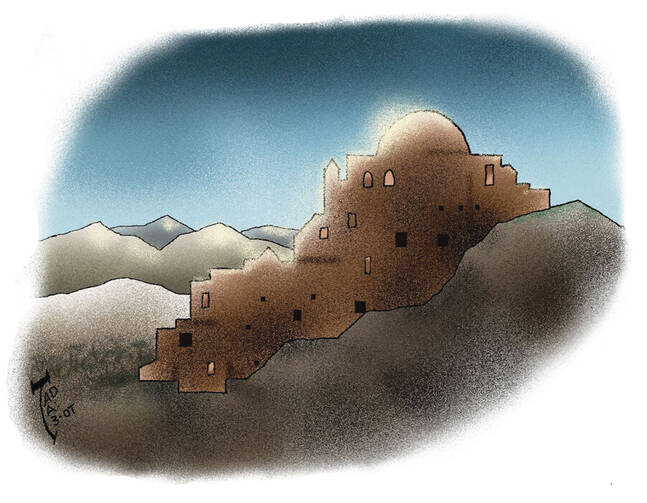Leaving Home
The Gospel of Matthew sets the beginning of Jesus’ ministry in a particular historical context: Jesus began his mission only after the arrest of John the Baptist. It was time. But in moving from his home in Nazareth to Capernaum, in the ancient territory of Naphtali, Matthew also sets Jesus’ ministry in the geographic and prophetic context of the prophet Isaiah.
Zebulun and Naphtali, tribes located in northern Galilee, had been conquered by the Assyrians in the time of the prophet Isaiah. Prophecy in ancient Israel tended to be written in the first place for the readers or hearers who had experienced or were experiencing the events of which the prophet spoke. Isaiah wrote for Isaiah’s time. Yet there is no doubt that a part of the purpose of ancient Israelite prophecy was to speak of what was to come when God’s kingdom would be established.
The eschatological dimension that permeates so much of Isaiah speaks of a time when the lost tribes would be brought back to restoration. While “in the former time,” Isaiah says, God “brought into contempt the land of Zebulun and the land of Naphtali,” “in the latter time he will make glorious the way of the sea, the land beyond the Jordan, Galilee of the nations.” Galilee of the nations is not just a geographic designation; it is a prophetic hope and promise. To the first hearers, Isaiah’s prophecy spoke of the ingathering of the exiled tribes of Israel, but in the phrase “Galilee of the nations” is seen a broader prophetic hope and a universal promise that the Messiah would fulfill.
Isaiah speaks of “Galilee of the nations,” Matthew of “Galilee of the Gentiles.” Both Isaiah’s Hebrew word, goyim, and Matthew’s Greek word, ethne, were used to identify those who were not a part of the kingdom of Israel. This is why Jesus’ move to Capernaum, into Naphtali in the region of the Gentiles, is laden with meaning. Jesus’ ministry, summarized in the simple proclamation, “Repent, for the kingdom of heaven has come near,” is offering a new understanding of kingdom, available to all nations. Isaiah imagined that Zebulun and Naphtali would see a great light, but this is reimagined in Matthew’s understanding to indicate that all were now welcome in God’s kingdom.
Still, the first invitations were issued to fishermen of the former region of Naphtali. Simon and Andrew, James and John were not biblical scholars, nor were they from Jerusalem of Judea, let alone a great center of learning like Rome, Alexandria or Ephesus. They were chosen from a geographically backwater town. They were ordinary men who left their work and families when called and followed Jesus. It was from this small town and with these working men that Jesus began to form the church and to shine the great light of God’s kingdom.
Jesus’ ministry began with him travelling “throughout Galilee, teaching in their synagogues and proclaiming the good news of the kingdom and curing every disease and every sickness among the people.” In doing so, Jesus began to establish the kingdom of heaven, for these few men became many more men and women, who town by town and region by region carried with them the light of the Gospel. After Jesus’ resurrection and ascension, the church recognized that the task of bringing light to the nations rested with the response of men and women to the Gospel.
God’s kingdom is not simply Isaiah’s ancient prophecy or the glorious future kingdom of heaven, but the mission of the present church. The church is ordinary men and women who hear Jesus’ call to follow, who participate in the building of God’s kingdom now. It is about recognizing the great light that shines on in every person who moves from the darkness to follow Jesus’ call.
This article also appeared in print, under the headline “Leaving Home,” in the January 20-27, 2014, issue.








